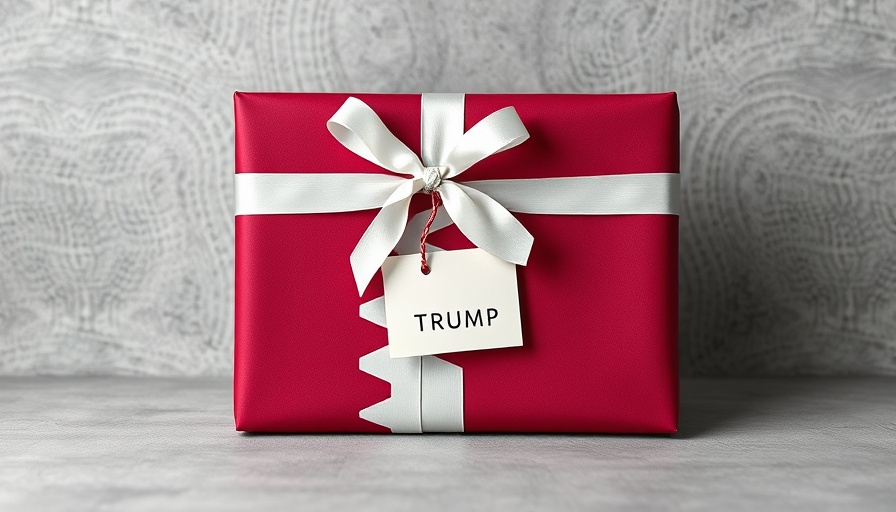
Understanding the Legal Boundaries of Foreign Gifts
The recent discussion surrounding former President Donald Trump accepting a retrofitted 747-8 jumbo jet from Qatar raises significant constitutional queries. While it provokes a strong emotional response from many, it also illustrates a nuanced intersection of law, gratitude from foreign states, and ethical standards in governance.
Historical Context of the Emoluments Clause
The U.S. Constitution's Emoluments Clause was crafted with the intent to prevent foreign influence over public officials. However, a 1967 statute modified the landscape, suggesting that Congress can provide advance consent for certain gifts from foreign nations. In essence, if Congress approves, the specter of unethical influence dwindles, even as multiple legal perspectives arise. This historical context is crucial, especially given Trump's previous entanglements with this clause during his presidency, where he faced scrutiny for foreign revenues generated by his businesses.
Public Sentiments Versus Legal Allowances
Public opinion is often shaped by sentiments about foreign relationships, particularly with countries like Qatar, perceived as supporters of terror. This raises the question: should legal allowances be at odds with public values? Many Americans may feel unease about a former president receiving luxurious gifts from a nation with a controversial reputation. Even if the law permits it, such actions can fuel distrust in political processes.
The Implications of Accepting a Luxury Jet
While the legality of accepting a refurbished aircraft as part of Trump’s legacy is one discussion, the broader implications are arguably of more significance. A luxury jet, referred to as a "palace in the sky," may symbolize power and prestige, but it can also portray a disconnect from the electorate's concerns about transparency and accountability. The jet is not just a lavish gift; it sends a message about leadership priorities in challenging economic times.
Potential Consequences and Political Fallout
Accepting the jet could lead to a political backlash, reigniting divisive narratives about Trump's tenure and his ties to foreign powers. Even if Congress embraces this acceptance, the public may perceive it as a glaring contradiction of moral values. Such actions can polarize opinions, driving a wedge between supporters and critics.
Future Predictions: What Lies Ahead?
With the current legal framework and public sentiment framing the conversation, we can speculate about future ramifications. If Trump proceeds with the acquisition, it may set new precedents for future leaders regarding boundaries of ethical conduct and foreign gifts. This scenario could alter the conduct of public officials, redefining acceptable norms in governance.
Conclusion: The Ethical Dilemma
The situation surrounding Trump’s potential acceptance of the jet from Qatar serves as a springboard for important conversations about ethics, governance, and law. As the legality is weighed against public sentiment, we must remain vigilant about the implications for future administrations and strive to ensure that political integrity is upheld.
If you wish to stay informed about the intricacies of such matters and their impact on policy and the public, consider taking active steps to engage in political discussions or support ethical governance initiatives that demand transparency.
 Add Row
Add Row  Add
Add 




Write A Comment